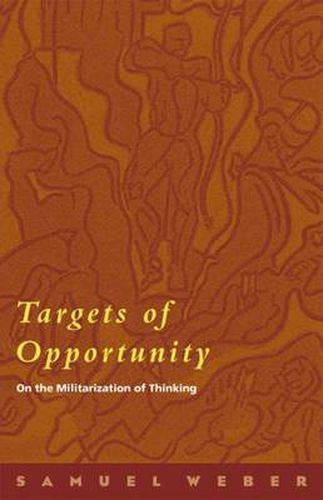Readings Newsletter
Become a Readings Member to make your shopping experience even easier.
Sign in or sign up for free!
You’re not far away from qualifying for FREE standard shipping within Australia
You’ve qualified for FREE standard shipping within Australia
The cart is loading…






The title of this book echoes a phrase used by the Washington Post to describe
the American attempt to kill Saddam Hussein at the start of the war against
Iraq. Its theme is the notion of targeting (skopos) as the name of an intentional
structure in which the subject tries to confirm its invulnerability by aiming to
destroy a target. At the center of the first chapter is Odysseus’s killing of the suitors;
the second concerns Carl Schmitt’s Roman Catholicism and Political Form; the
third and fourth treat Freud’s Thoughts for the Times on War and Death and
The Man Moses and Monotheistic Religion. Weber then traces the emergence
of an alternative to targeting, first within military and strategic thinking itself
( Network Centered Warfare ), and then in Walter Benjamin’s readings of
Capitalism as Religion and Two Poems of Friedrich Hoelderlin.
$9.00 standard shipping within Australia
FREE standard shipping within Australia for orders over $100.00
Express & International shipping calculated at checkout
The title of this book echoes a phrase used by the Washington Post to describe
the American attempt to kill Saddam Hussein at the start of the war against
Iraq. Its theme is the notion of targeting (skopos) as the name of an intentional
structure in which the subject tries to confirm its invulnerability by aiming to
destroy a target. At the center of the first chapter is Odysseus’s killing of the suitors;
the second concerns Carl Schmitt’s Roman Catholicism and Political Form; the
third and fourth treat Freud’s Thoughts for the Times on War and Death and
The Man Moses and Monotheistic Religion. Weber then traces the emergence
of an alternative to targeting, first within military and strategic thinking itself
( Network Centered Warfare ), and then in Walter Benjamin’s readings of
Capitalism as Religion and Two Poems of Friedrich Hoelderlin.